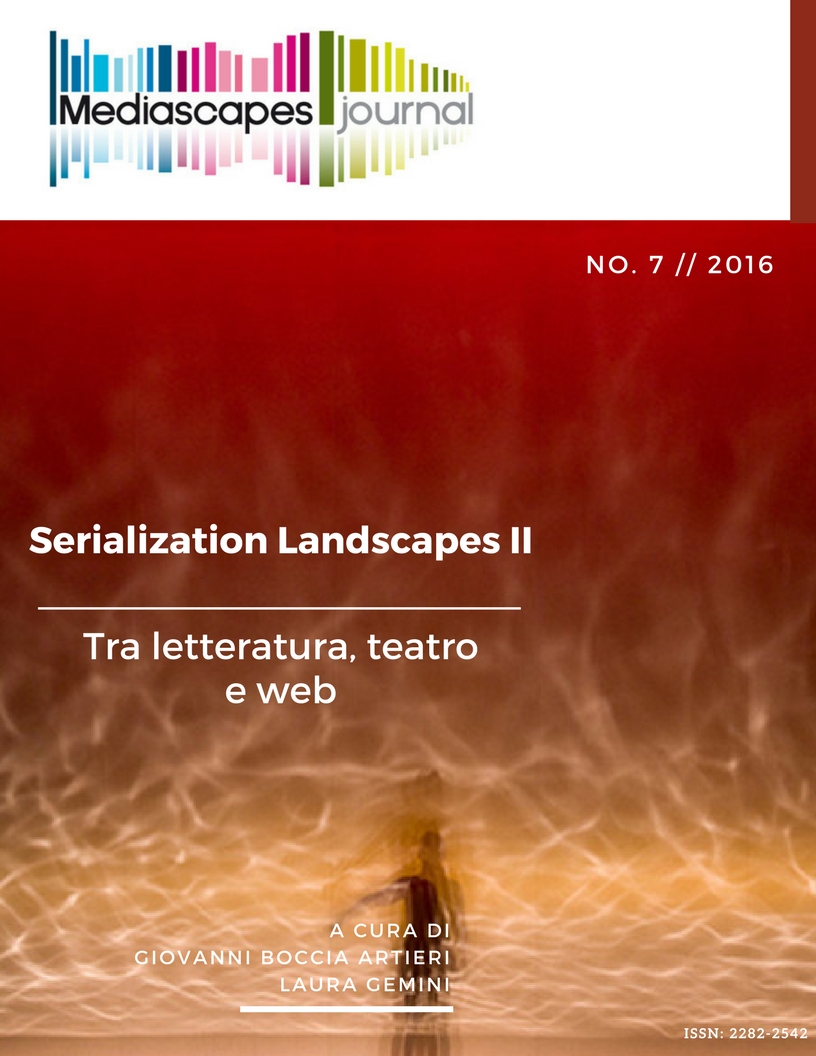L'interactive storytelling delle web serie: sperimentazioni e ri-mediazioni
Parole chiave:
Webseries, Interattività, Interactive Storytelling, RimediazioneAbstract
My paper aims to analize the changing configurations occurring between users, storytelling and digital media within the context of webseries productions. One of the purposes of my paper is to observe the key role of the consumer who modifies stories with its fruition, and its relationship with the contemporary mediasphere that is increasingly organised on an interactive entertainment.
The critical instruments I have used for the analysis are the four categories of interaction man-media described by Jans F. Jensen (2000), the four categories of interactive storytelling used by Giulio Lughi (2015) to map the technological ambients of storytelling, and the aesthetic of interactive interfaces used for the access of the user inside story (Manovich, 2001). One of the main properties of interactive storytelling is the ability to deconstruct the traditional narrative notions, such as: linearity, authoriality and passivity of the audiences. The interactive storytelling develops instead a multilinear dimension of stories, the crisis of role of the author, the illusion of the user to control the story, and the use of re-mediated interfaces (Bolter and Grusin 1999); in other words a narrative fragmentations. In this context the traditional concepts are reformulated as well as the use of seriality are reformulated according to users ways to watch online audiovisuals.


